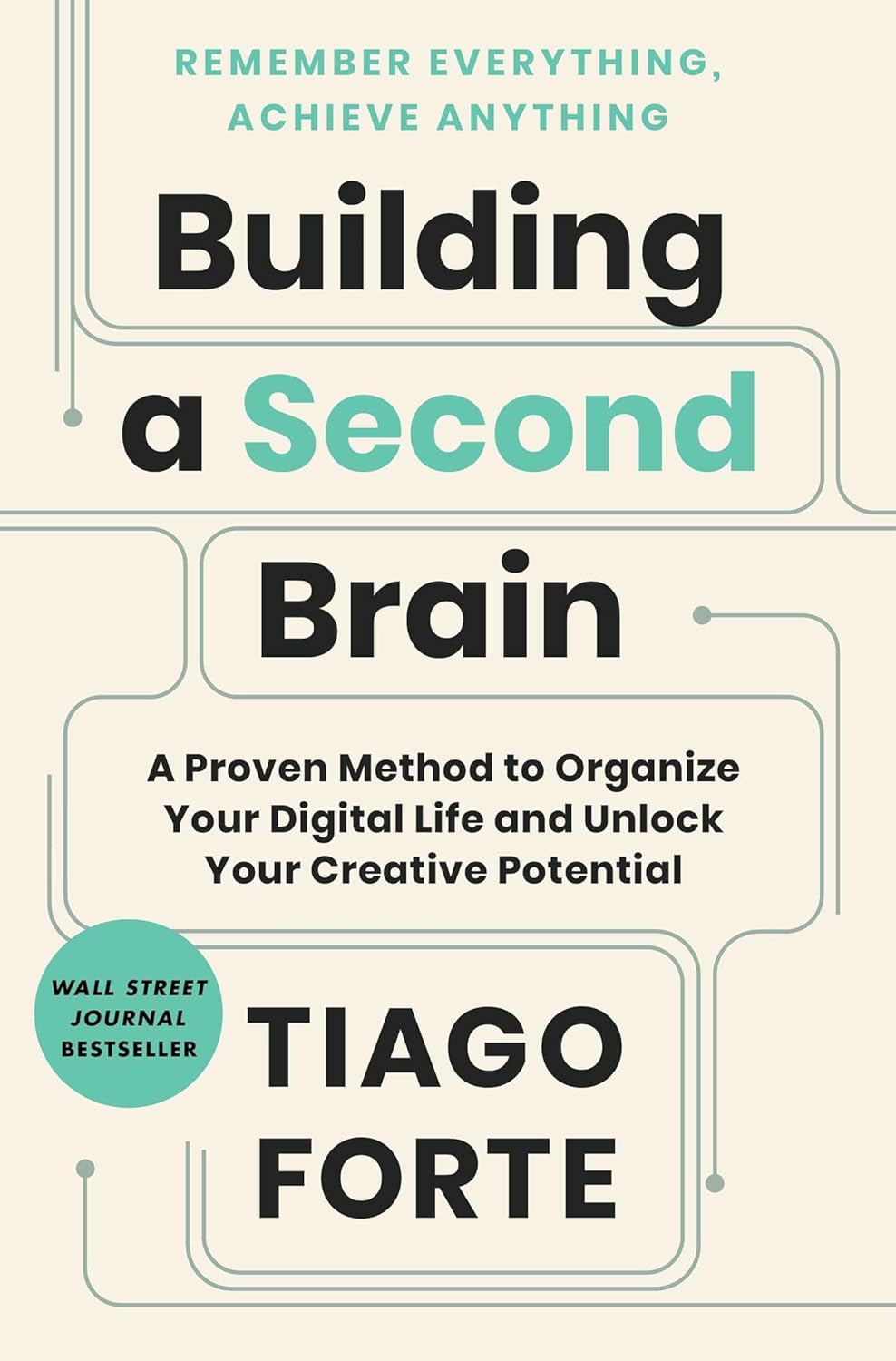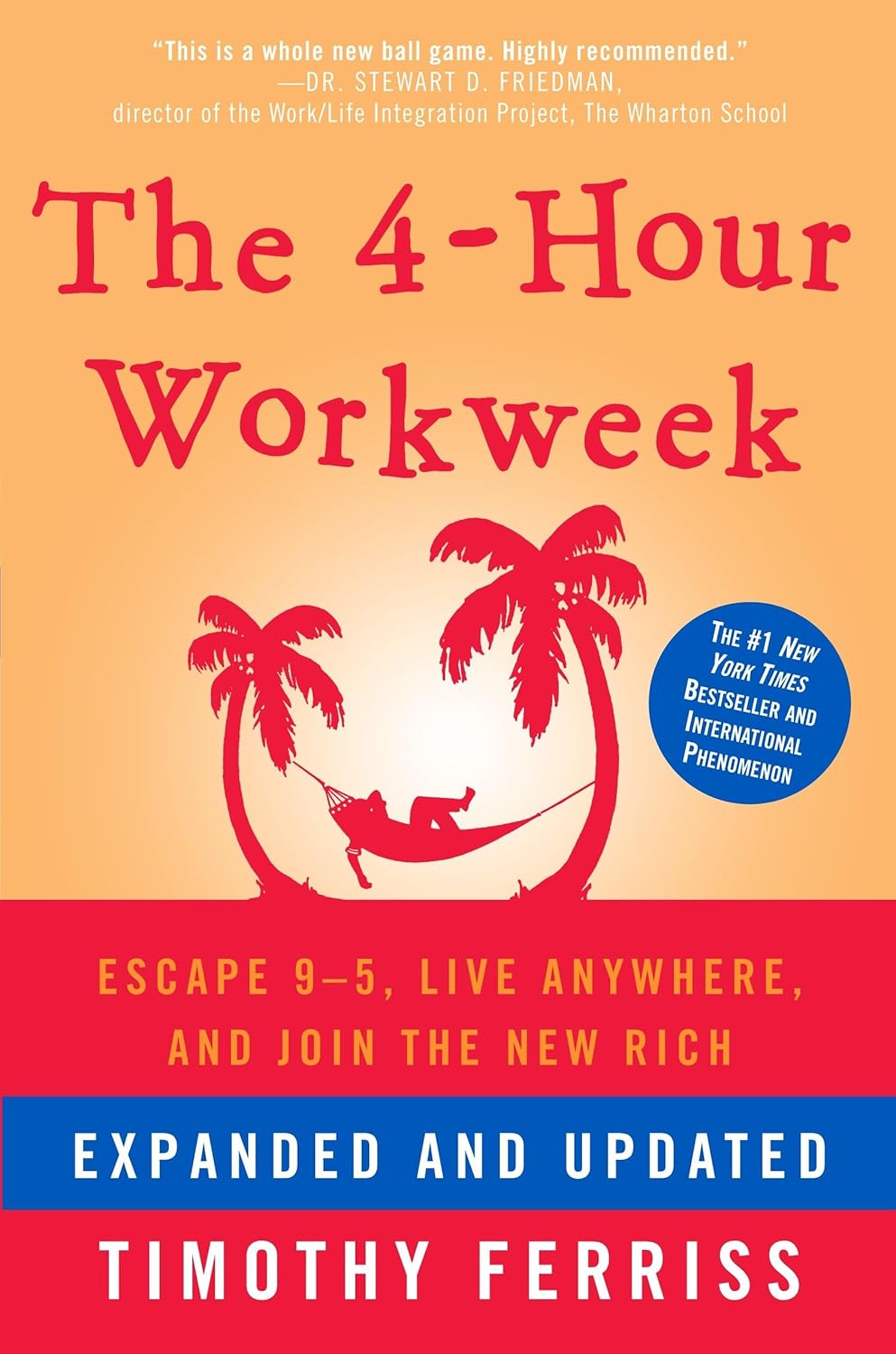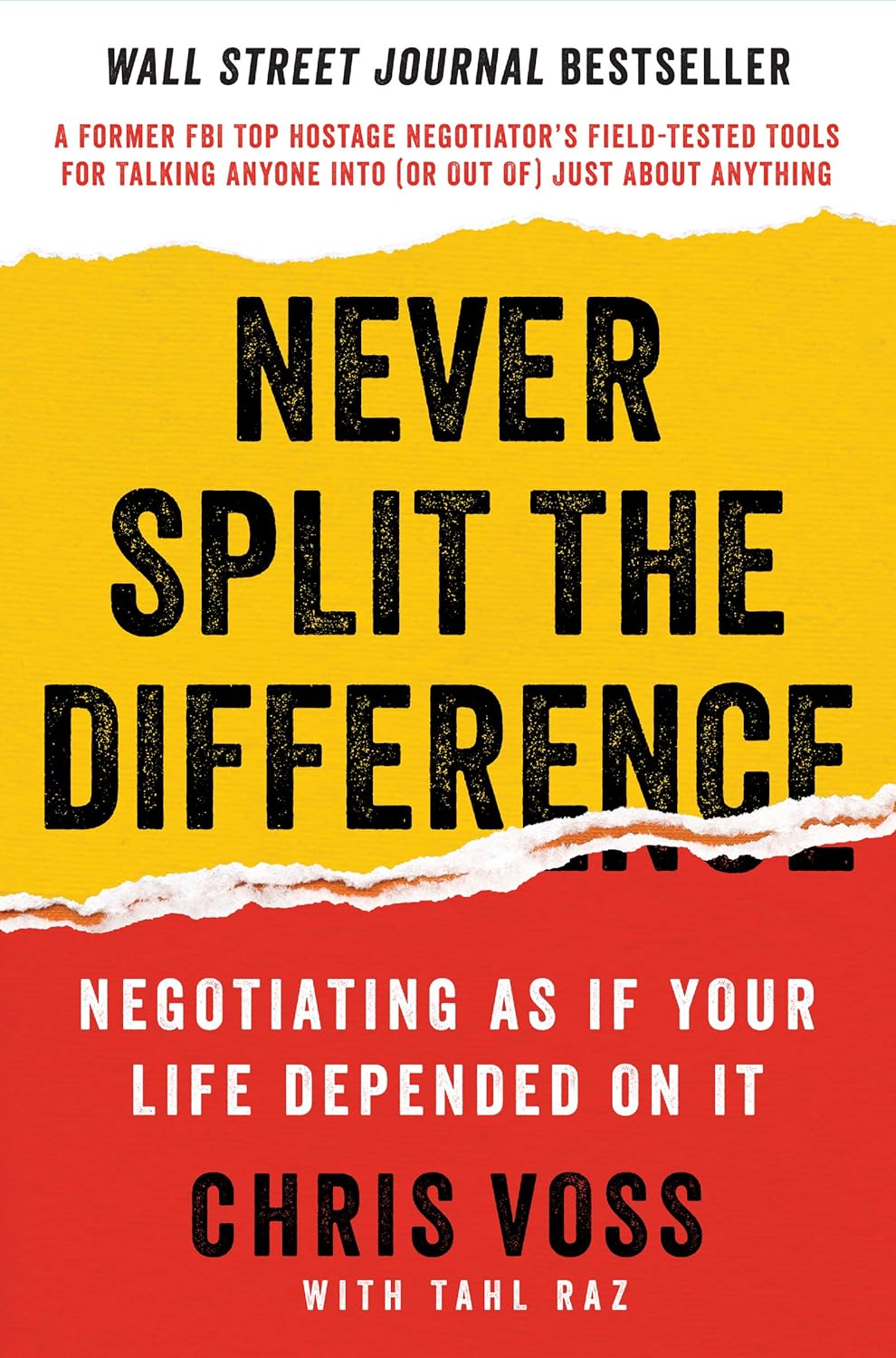
Buy The Book
Chapter
- ✦ Overture
- ✦ RULE 1. Stand up straight with your shoulders back
- ✦ RULE 2. Treat yourself like someone you are responsible for helping
- ✦ RULE 3. Make friends with people who want the best for you
- ✦ RULE 4. Compare yourself to who you were yesterday, not to who someone else is today
- ✦ RULE 5. Do not let your children do anything that makes you dislike them
- ✦ RULE 6. Set your house in perfect order before you criticize the world
- ✦ RULE 7. Pursue what is meaningful (not what is expedient)
- ✦ RULE 8. Tell the truth—or, at least, don’t lie
- ✦ RULE 9. Assume that the person you are listening to might know something you don’t
- ✦ RULE 10. Be precise in your speech
- ✦ RULE 11. Do not bother children when they are skateboarding
- ✦ RULE 12. Pet a cat when you encounter one on the street
- ✦ Coda
12 Rules for Life: An Antidote to Chaos

About
“12 Rules for Life: An Antidote to Chaos” is a self-help book by Canadian psychologist Jordan B. Peterson, offering practical advice for a meaningful life. Jordan B. Peterson, a clinical psychologist and professor of psychology at the University of Toronto, gained prominence for his critiques of political correctness and his deep exploration of cultural and psychological themes.
In “12 Rules for Life,” Peterson distills complex psychological theories and philosophical ideas into twelve practical principles designed to help individuals navigate the chaos of modern life. Each rule is accompanied by anecdotes from Peterson’s own life, his clinical practice, and a wide array of cultural references, including mythology, religion, and literature. The rules address fundamental aspects of human existence, such as personal responsibility, the pursuit of meaning, and the importance of truth and honesty. By encouraging readers to adopt these rules, Peterson aims to provide a framework for personal growth, resilience, and a more fulfilling life. His work emphasizes the balance between order and chaos, suggesting that confronting life’s inevitable challenges with courage and integrity can lead to a richer and more purposeful existence.

Spark
Learn
Review
✦ Overture
Life is undeniably complex, filled with constraints and challenges. Many people feel overwhelmed by the idea of adhering to rules, fearing they might further confine their already intricate lives. Yet, without guidelines, we can become enslaved to our own desires and lose control, much like the story of the golden calf illustrates. Rules, when understood correctly, provide structure and elevate us, preventing us from succumbing to our basest instincts.
Consider the biblical narrative: Moses descends with commandments, a set of rules meant to guide rather than restrict. The ancient stories demonstrate that rules, when embedded in engaging narratives, illuminate their necessity and benefits. Similarly, life’s rules serve to facilitate, rather than hinder, our progress toward meaningful goals.
Embracing rules doesn’t mean relinquishing freedom but rather harnessing it for greater purpose and fulfillment. The challenge lies in recognizing that without structure, chaos can easily reign. A disciplined life, guided by sound principles, empowers individuals to achieve order and meaning. Through thoughtful reflection and the adoption of guiding principles, one can navigate the complexities of existence, transforming potential chaos into a life of purpose and freedom.
✦ RULE 1. Stand up straight with your shoulders back
Start by recognizing the importance of posture, not just physically but psychologically. Standing up straight with shoulders back is more than a simple adjustment; it’s a metaphor for confronting the world with confidence. By adopting this stance, you signal to yourself and others that you are prepared to take on life’s challenges.
The physical act of correcting posture has deep evolutionary roots. In the animal kingdom, displays of strength and dominance are vital for survival. Similarly, a confident posture influences brain chemistry, boosting serotonin levels, which are crucial for feelings of well-being and resilience. This chemical boost can help you navigate social hierarchies and interactions more effectively, fostering a sense of self-assurance.
Life is inherently filled with struggle, and it is easy to succumb to feelings of defeat and vulnerability. By standing tall, you not only communicate strength but also cultivate it internally. This posture is a declaration of your willingness to embrace and tackle the chaos around you, rather than shrinking away from it.
Embracing this stance encourages a cycle of positive reinforcement. As you present yourself confidently, others respond in kind, leading to improved interactions and opportunities. This, in turn, reinforces your inner strength and capability.
Consider the broader implications of this rule in daily life. By embodying the posture of readiness and confidence, you create a foundation for tackling personal and professional challenges. It sets the tone for your approach to life’s uncertainties, encouraging a proactive rather than reactive mindset.
This isn’t just about physical alignment; it’s about aligning your mindset with your goals and values. By standing up straight, you commit to facing the world head-on, embracing both its beauty and its chaos. This approach fosters growth, resilience, and a sense of purpose, enabling you to navigate life’s complexities with courage and determination.
In essence, adopting a strong posture is a powerful step toward self-improvement and mastery over one’s circumstances. It is a reminder that you have the capacity to rise above challenges and assert your presence in the world with dignity and strength.
✦ RULE 2. Treat yourself like someone you are responsible for helping
Imagine you have a responsibility to care for someone else—someone you truly want the best for. Now, consider applying that same level of care and attention to yourself. Often, it’s easier to show kindness and responsibility toward others while neglecting your own needs and well-being. This rule encourages you to shift that perspective and view yourself as someone deserving of the same compassion and diligence you offer to others.
Start by acknowledging the inherent value you possess. Just like you understand the importance of another person’s health and happiness, recognize that your own well-being is equally vital. This involves taking steps to nurture your physical health, emotional stability, and mental clarity. It means making choices that enhance your life rather than diminish it.
This approach requires honest self-reflection. Identify areas where you may be neglecting your needs, whether it’s through poor lifestyle choices, unhealthy relationships, or negative self-talk. Once you have a clear picture, commit to making positive changes. Treat yourself with the same care and responsibility you would extend to someone you love.
By adopting this mindset, you create a foundation for personal growth and fulfillment. You become more attuned to your own needs and more willing to take the necessary actions to meet them. This isn’t about indulgence or selfishness; it’s about recognizing that you are worth the effort required to lead a healthy, balanced life.
Consider how this perspective can transform your daily decisions. When you treat yourself with respect and care, you naturally make choices that align with your well-being. This can lead to improved physical health, better relationships, and a more fulfilling life overall.
Remember, you are the caretaker of your own life. By treating yourself as someone you are responsible for helping, you empower yourself to make choices that foster growth, resilience, and happiness. This approach not only benefits you but also enhances your ability to support and care for others, creating a positive cycle of kindness and responsibility.
✦ RULE 3. Make friends with people who want the best for you
Surround yourself with individuals who genuinely desire your success and well-being. These are friends who uplift you, encourage your growth, and celebrate your achievements without envy. In life, the company you keep significantly influences your path, so choosing the right friends is crucial.
Consider the impact of supportive friendships. When you are surrounded by people who want the best for you, you feel motivated and empowered to pursue your goals. Their encouragement can be a powerful catalyst for personal development. These friends will challenge you to improve, offer honest feedback, and stand by you during difficult times.
On the other hand, be wary of those who are unsupportive or toxic. Such individuals might subtly undermine your efforts, discourage your ambitions, or rejoice in your setbacks. Their negativity can drain your energy and hinder your progress. Recognizing these patterns is essential for maintaining a healthy social circle.
Developing friendships with those who have your best interests at heart requires discernment. Pay attention to how your interactions make you feel. Do you leave conversations feeling inspired and valued, or drained and belittled? Use these insights to guide your connections.
Building a circle of positive influences also involves being a good friend yourself. Offer the same support, encouragement, and honesty you seek from others. By fostering mutual respect and care, you create a network of relationships that are both fulfilling and beneficial.
Remember that true friends participate in your journey, sharing in both your successes and struggles. They provide a safe space for vulnerability and growth, allowing you to explore new possibilities without fear of judgment. In their company, you find the confidence to tackle challenges and the joy of shared accomplishments.
In essence, making friends with those who want the best for you enriches your life. It creates an environment where you can thrive, pushing you toward becoming the best version of yourself. Choose your friends wisely, and cultivate relationships that nurture your spirit and support your aspirations.
✦ RULE 4. Compare yourself to who you were yesterday, not to who someone else is today
Focus on your own growth rather than comparing yourself to others. It’s easy to look at someone else’s achievements and feel inadequate, but this mindset can lead to frustration and envy. Instead, shift your attention to your personal journey, measuring progress against your past self.
Every day offers an opportunity for improvement. Reflect on who you were yesterday, and aim to be better today. This approach fosters a sense of accomplishment and motivation, as you concentrate on personal development rather than external benchmarks. By setting your own goals and tracking your own growth, you create a path that is uniquely yours.
Consider the value of small, consistent steps. Even minor improvements, when accumulated over time, lead to significant change. Whether learning a new skill, improving a habit, or enhancing your mindset, each step forward is a victory. Celebrate these milestones, no matter how small.
This perspective encourages self-compassion. Understand that everyone’s journey is different, and comparing yourself to others is often misleading. People have diverse backgrounds, experiences, and challenges, making their paths distinct from yours. By focusing on your own progress, you cultivate a healthier, more positive self-view.
Use this mindset to overcome setbacks. When faced with challenges, reflect on your past resilience and growth. Recognize that setbacks are part of the journey, offering lessons and opportunities for further development. By maintaining a focus on personal progress, you can navigate obstacles with greater confidence and resolve.
Embrace the idea that personal growth is a lifelong journey. There is always room for improvement, and each day provides a chance to become a better version of yourself. By focusing on your own path, you free yourself from the pressure of external comparisons, fostering a sense of satisfaction and fulfillment in your achievements.
Ultimately, by comparing yourself only to your past self, you nurture a growth-oriented mindset. This approach empowers you to pursue your goals with clarity and purpose, transforming challenges into opportunities for advancement. Celebrate your unique journey, and strive each day to build on your own progress.
✦ RULE 5. Do not let your children do anything that makes you dislike them
Guide your children with intention, ensuring their actions foster a positive relationship. Allowing behaviors that make them unlikeable creates tension and resentment, both for you and others in their lives. It’s crucial to intervene early to cultivate habits that lead to harmonious interactions.
Start by setting clear, consistent boundaries. Children thrive with structure, knowing what is expected and what the consequences are for crossing the line. This clarity helps them understand their limits and develop self-discipline. When you enforce boundaries, you’re teaching them respect for themselves and others.
Pay attention to behaviors that might lead to dislike, whether it’s tantrums, disrespect, or selfishness. Address these promptly with calm and firm correction. Your goal is to help them understand the impact of their actions, fostering empathy and social awareness. By guiding them toward more positive behaviors, you nurture their ability to form healthy relationships.
Communication is key. Engage with your children in open dialogue, explaining why certain behaviors are unacceptable. Encourage them to express their feelings and thoughts, helping them develop emotional intelligence. When children feel heard and understood, they are more likely to respond positively to guidance.
Lead by example. Demonstrate the behaviors you wish to see in your children. Show kindness, patience, and respect in your interactions, providing a model for them to emulate. Children learn a great deal by observing, so embody the values you want to instill.
Recognize that discipline is not about punishment but teaching. The aim is to guide children toward becoming well-adjusted individuals who can navigate social and emotional challenges. Consistent, loving discipline helps them learn accountability and the importance of making amends.
Remember, your relationship with your children sets the foundation for their future interactions. By ensuring they act in ways that are likable and respectful, you help them build positive self-esteem and social skills. This approach fosters a loving and supportive environment where children can thrive.
Ultimately, by not allowing behaviors that lead to dislike, you nurture a strong, positive bond with your children. This bond supports their growth into caring, responsible individuals who contribute positively to the world around them.
✦ RULE 6. Set your house in perfect order before you criticize the world
Before passing judgment on the world, focus on organizing your own life. It’s tempting to point out flaws and injustices around you, but true change begins at home. By addressing your personal chaos, you lay the groundwork for meaningful external impact.
Start small. Identify areas in your life that need attention—whether it’s maintaining your living space, improving your health, or managing your time more effectively. Tackle these issues with diligence and persistence. As you bring order to your immediate environment, you’ll find a sense of control and clarity emerging.
Examine your habits and routines. Are they contributing to your well-being or hindering your progress? Make conscious choices to adopt healthier, more productive practices. This self-reflection allows you to understand the roots of your own challenges and equips you to address them.
This process involves taking responsibility for your actions and decisions. Acknowledge your role in your circumstances and commit to making changes where necessary. By doing so, you empower yourself to create a life that aligns with your values and aspirations.
As your personal world becomes more ordered, your perspective on external issues often shifts. With a clearer mind and a more stable foundation, you’re better equipped to engage with the world’s complexities. Your criticisms become more thoughtful and constructive, grounded in the experience of having addressed your own imperfections.
This approach also fosters empathy. When you understand the effort required to put your own house in order, you become more compassionate toward others who are struggling. This empathy can lead to more effective and meaningful contributions to societal change.
Remember, the journey toward personal order is ongoing. It’s not about achieving perfection but striving for continuous improvement. By focusing on your own life first, you build resilience and integrity, enabling you to face the world’s challenges with strength and purpose.
Ultimately, setting your house in order creates a ripple effect. As you cultivate order within, you inspire others to do the same, contributing to a more harmonious and constructive world. Embrace this responsibility, and let your example be a catalyst for positive change.
✦ RULE 7. Pursue what is meaningful (not what is expedient)
Choose paths that offer deep significance rather than quick, easy solutions. In a world that often prioritizes immediate gratification, pursuing what holds true meaning requires courage and patience. This approach enriches your life, providing a lasting sense of purpose and fulfillment.
Start by identifying what truly matters to you. Reflect on your values, passions, and the impact you wish to have on the world. Meaningful pursuits often involve contributing to something larger than yourself, whether through relationships, work, or personal growth. Embrace these endeavors, even if they demand sacrifice or effort.
Understand that meaningful pursuits can be challenging. They may require you to confront discomfort, delay gratification, or make difficult choices. However, these challenges are integral to personal growth and fulfillment. By committing to what matters, you build resilience and character.
Avoid the trap of choosing what is merely expedient—actions that provide immediate but fleeting satisfaction. These choices can lead to a cycle of short-term fixes, leaving you unfulfilled and disconnected from your deeper values. Instead, focus on the long-term benefits of meaningful actions, which provide a more profound sense of accomplishment and joy.
Consider how your decisions align with your broader life goals. When faced with options, ask yourself whether they contribute to your long-term vision or merely offer temporary relief. By consistently choosing what is meaningful, you create a life that reflects your values and aspirations.
Recognize the role of responsibility in pursuing meaning. Meaningful endeavors often involve taking on commitments and obligations, whether to yourself or others. Embrace these responsibilities as opportunities to grow and make a positive impact. Through them, you find deeper connection and satisfaction.
Remember, the pursuit of meaning is an ongoing journey. It involves continuous reflection and adaptation, as your values and circumstances evolve. Stay open to new opportunities and insights, allowing them to guide your path toward greater fulfillment.
Ultimately, choosing meaning over expediency leads to a richer, more purposeful life. It empowers you to face challenges with determination and to contribute positively to the world around you. Embrace this journey, and let it guide you toward your true potential.
✦ RULE 8. Tell the truth—or, at least, don’t lie
Commit to honesty, as it forms the foundation of a life built on integrity and trust. Speaking the truth fosters genuine relationships and self-respect, while lies create webs of deceit and confusion. While being truthful can be challenging, especially in difficult situations, it is vital for a fulfilling and authentic life.
Start by understanding the power of truth. When you express what is real and accurate, you align yourself with reality, allowing for clearer thinking and decision-making. Truth acts as a guiding light, helping you navigate complexities with confidence and clarity.
Recognize that lying, even in small ways, can lead to significant consequences. Deception breeds mistrust, erodes relationships, and distorts your perception of yourself and the world. It creates a fragile foundation that can easily crumble, leaving you lost and disconnected.
When faced with the temptation to lie, pause and reflect on the potential impact. Consider how dishonesty might affect your relationships, self-image, and future choices. By choosing truth, you uphold your values and strengthen your character.
Understand that truth-telling also involves courage. It may require confronting uncomfortable realities or admitting mistakes, but these actions pave the way for growth and healing. By facing the truth, you open yourself to learning and improvement.
If complete truth seems daunting, start by avoiding lies. Commit to not saying things that you know are false. This step alone can profoundly shift your interactions and self-awareness, leading you toward greater authenticity.
Embrace the liberation that comes with honesty. When you speak truthfully, you free yourself from the burden of maintaining falsehoods and the anxiety of being discovered. This freedom allows you to engage with the world more openly and sincerely.
Remember, truthfulness is a practice. It requires ongoing effort and dedication, as well as a willingness to reflect and adjust. By consistently choosing honesty, you build a life rooted in reality, trust, and respect.
Ultimately, telling the truth—or at least not lying—cultivates a life of integrity and fulfillment. It enhances your relationships, fortifies your self-esteem, and aligns you with your true self. Embrace this path, and let honesty guide you toward a more meaningful existence.
✦ RULE 9. Assume that the person you are listening to might know something you don’t
Approach conversations with an open mind, recognizing that everyone you encounter may offer insights you lack. This mindset enriches your understanding and fosters meaningful connections. By valuing others’ perspectives, you cultivate humility and a willingness to learn, essential traits for personal growth.
Begin by truly listening when others speak. Set aside preconceived notions and focus on grasping their viewpoints. This attentiveness not only deepens your comprehension but also shows respect, encouraging open and honest dialogue.
Acknowledge that your knowledge is limited. No one possesses all the answers, and there is always more to learn. Embracing this humility allows you to benefit from the experiences and expertise of others, broadening your own perspective.
Engage in conversations with curiosity. Ask questions and seek clarification, demonstrating genuine interest in others’ ideas. This approach not only enhances your understanding but also fosters an environment where diverse thoughts can be shared and explored.
Resist the urge to dominate discussions. Instead, create space for others to express themselves, valuing their contributions as opportunities for learning. This openness can lead to unexpected insights and solutions, enriching your own thinking.
Reflect on how this mindset can transform your relationships. When you value others’ knowledge, you build trust and rapport, encouraging collaboration and mutual respect. This dynamic strengthens connections and creates a supportive network for exchanging ideas.
Recognize that everyone’s experiences and backgrounds shape their understanding of the world. By appreciating these differences, you gain a more nuanced view of complex issues, enhancing your ability to navigate challenges and make informed decisions.
Remember, assuming others have valuable knowledge is an ongoing practice. It requires patience, openness, and a commitment to growth. By embracing this approach, you expand your horizons and cultivate a richer, more informed life.
Ultimately, valuing the insights of those you listen to fosters a culture of learning and respect. It enhances your personal growth and strengthens your relationships, creating a more connected and understanding world. Embrace this mindset, and let it guide you toward greater knowledge and empathy.
✦ RULE 10. Be precise in your speech
Choose your words carefully to convey your thoughts and intentions clearly. Precision in language not only enhances understanding but also prevents misunderstandings and conflicts. By being specific in your speech, you create a foundation for effective communication and meaningful interactions.
Start by identifying what you truly wish to express. Take the time to organize your thoughts and articulate them accurately. This clarity helps you communicate more effectively, ensuring that your message is understood as intended.
Recognize the power of words. Language shapes perception and can influence emotions and actions. By choosing precise words, you convey your message with impact, leaving little room for misinterpretation.
Avoid vague or ambiguous statements. When discussing complex topics or addressing issues, be as specific as possible. This precision allows others to grasp your meaning and respond appropriately, fostering productive dialogue.
Consider the context and audience when communicating. Tailor your language to suit the situation and the people involved, ensuring your message resonates and is relevant. This adaptability enhances your ability to connect and engage with others.
Being precise in speech also involves listening carefully. Pay attention to how others express themselves, and seek clarification if needed. This attentiveness allows you to respond accurately and thoughtfully, enhancing the quality of your interactions.
Reflect on how precise language can improve your relationships. When you communicate clearly, you build trust and understanding, reducing the likelihood of misunderstandings and conflicts. This clarity strengthens your connections, creating a more harmonious environment.
Remember, precision in speech is a skill that requires practice and mindfulness. It involves continually refining your ability to express yourself clearly and effectively. By committing to this practice, you enhance your communication skills and enrich your personal and professional relationships.
Ultimately, being precise in your speech fosters clarity, understanding, and connection. It empowers you to convey your thoughts and intentions accurately, leading to more meaningful and effective interactions. Embrace this approach, and let precise language guide you toward more successful communication.
✦ RULE 11. Do not bother children when they are skateboarding
Allow children the freedom to explore and take risks, such as skateboarding, without unnecessary interference. This freedom is essential for developing resilience, confidence, and problem-solving skills. By stepping back and letting them face challenges, you empower them to learn and grow.
Recognize that engaging in activities like skateboarding provides valuable lessons. Children learn about balance, perseverance, and the consequences of their actions. These experiences teach them how to assess risks and make decisions, skills that are crucial for navigating life’s complexities.
Understand the importance of calculated risk-taking. Shielding children from all potential dangers can hinder their development and make them risk-averse. By allowing them to experiment within safe boundaries, you help them build the courage and competence needed to tackle future challenges.
Observe how children push their limits while skateboarding. They learn to cope with failure and setbacks, such as falling, and develop strategies to improve. This process fosters resilience and a growth mindset, encouraging them to overcome obstacles rather than shy away from them.
Provide support by ensuring a safe environment where they can explore. Offer guidance when necessary, but resist the urge to control or micromanage their activities. Trust in their ability to learn from their experiences, knowing that these lessons will serve them well in the future.
Reflect on how this approach applies to broader life lessons. Encouraging independence and self-discovery helps children develop confidence and a sense of agency. They learn to trust their instincts and capabilities, leading to greater self-reliance and adaptability.
Remember, the goal is to nurture their growth, not to eliminate all risk. By allowing them to engage in challenging activities, you help them build the skills and mindset needed for success. This balance between freedom and guidance prepares them for the complexities of adulthood.
Ultimately, by not interfering when children are skateboarding, you support their journey toward independence and resilience. You contribute to their development into capable, confident individuals ready to face the world. Embrace this approach, and watch them grow through their own experiences and discoveries.
✦ RULE 12. Pet a cat when you encounter one on the street
Embrace moments of simple joy and mindfulness, like stopping to pet a cat you meet on the street. These small acts can bring comfort and presence amidst life’s chaos. By pausing to appreciate the little things, you cultivate a sense of gratitude and serenity.
Recognize the value of these brief encounters. Interacting with a friendly cat offers a moment of connection and tranquility, reminding you to slow down and be present. In a world often filled with stress and urgency, such experiences provide a refreshing pause.
Understand that life’s beauty often lies in its simplicity. While grand achievements and plans are important, so are the everyday moments that bring happiness and peace. By acknowledging these instances, you enrich your life with balance and perspective.
Let these moments serve as a reminder to seek out beauty and joy in unexpected places. Whether it’s a cat, a sunset, or a kind gesture, these experiences can uplift your spirit and offer solace during difficult times. They teach you to find light even amid darkness.
Reflect on how these small joys can influence your overall well-being. When you make space for them, you nurture a mindset of positivity and resilience. This approach helps you cope with challenges by focusing on what is good and meaningful.
Remember, life’s journey includes both trials and delights. By embracing moments of simple pleasure, you create a buffer against stress and negativity. These instances fortify your spirit, helping you maintain hope and perspective.
Ultimately, petting a cat on the street symbolizes the importance of embracing life’s simple pleasures. It encourages you to pause, connect, and appreciate the world around you. By doing so, you cultivate a richer, more fulfilling life filled with gratitude and joy. Embrace these moments, and let them guide you toward a more present and contented existence.
✦ Coda
As life unfolds, the journey remains unpredictable and challenging. Embrace the wisdom gained from navigating these complexities, using it to foster growth and understanding. The path is not about perfection but continuous improvement and adaptation. Each experience, whether joyful or painful, contributes to your development and resilience.
Reflect on the importance of courage, truth, and responsibility. These principles serve as anchors, guiding you through uncertainty and helping you find meaning. By staying true to these values, you build a foundation for a life of purpose and integrity.
Acknowledge the significance of community and connection. Relationships offer support and insights that enrich your journey. Engage with others openly, valuing the diverse perspectives and experiences they bring. Together, you can create a supportive environment for growth and transformation.
Remember, the pursuit of a meaningful life is a dynamic process. It requires commitment, reflection, and a willingness to embrace change. By remaining open to learning and growth, you navigate the complexities of existence with grace and resilience.
Ultimately, life’s journey is about finding balance, embracing challenges, and cherishing moments of joy. Let these insights guide you toward a more fulfilling and authentic life, where each step taken reflects your values and aspirations.
For People
– Individuals Seeking Personal Growth;
– Spiritual Seekers;
– Anyone Facing Life Transitions;
– Self-Help Enthusiasts;
– Mindfulness Practitioners
Learn to
– Understanding the Power of Small Changes;
– Building Better Habits;
– Breaking Bad Habits;
– Improving Self-Control and Motivation;
– Achieving Long-term Success









